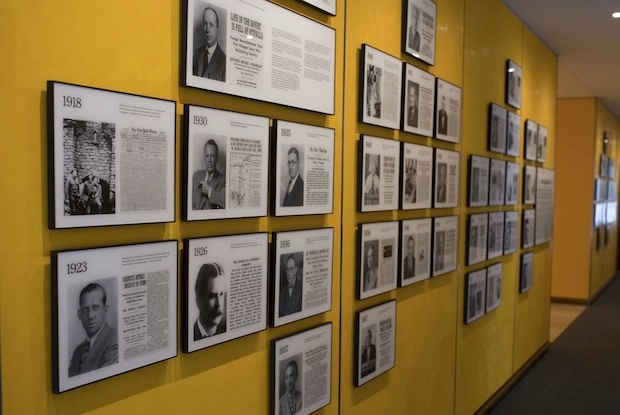I was interested to read a story by Michael Wolff in USA Today saying that Graydon Carter may be about to step down as editor-in-chief of Vanity Fair. Carter has been at the helm for 22 years and was my boss during the three years I spent there between 1995 and 1998. According to Wolff, himself a columnist at the magazine, the runners and riders to take over are nearly all British.
Wolff thinks this is mainly because power within Condé Nast, the publishing company that owns Vanity Fair, has shifted from New York and towards London, home of Condé Nast International, a subsidiary that is now more profitable than the mother ship. No doubt there’s something in that, but the bigger reason must surely be because British journalists are so much better than their American counterparts.
You can get a sense of what American journalists’ priorities are from looking at a 96-page report that the New York Times has just produced about… the New York Times. I’m not talking about the words, obviously, which are far too boring to read, but the pictures. On page three of the report, there’s a photograph of the paper’s top brass gathered around a computer terminal, having just discovered that the Grey Lady has won yet another Pulitzer prize. The staff are gathered around them on the stairs — hundreds of them — and one of the editors is looking up and humbly applauding them: ‘Well done, folks. You knocked it out of the park… again.’
That’s what most American journalists care about — winning prizes that affirm just what noble tribunes of democracy they are. In Britain, we have less lofty ambitions. For us, it’s all about selling newspapers and — pathetic hacks that we are — producing stories that people actually want to read. Our Yankee counterparts preen about, congratulating themselves on upholding the highest ideals of the fourth estate, whereas we focus on the bottom line and pride ourselves on keeping our papers afloat. For them, it’s a profession and its members are expected to observe a highfalutin code of professional conduct. For us, it’s a trade and, to be honest, it’s more about not getting caught. If you said the word ‘ethics’ to most British hacks they’d think you were talking about the birthplace of Kelvin MacKenzie.
Yes, yes, we’re ghastly knuckle-dragging troglodytes and, when it comes to man’s inhumanity to man, about as sentimental as a bog brush. The foreign correspondent Edward Behr once overheard a colleague ask the following question at a scene of carnage and devastation in some far-flung hell hole: ‘Anyone here been raped and speak English?’ (Christopher Hitchens described that as ‘the standby slogan of the Express foreign desk’.) As we in the trade can testify, Evelyn Waugh’s Scoop is probably the most accurate work of reportage a British journalist has ever produced.
Yet we also have an unerring nose for what will pique a reader’s interest, what we call ‘news sense’, and it’s this that makes us the best journalists in the world. Not ‘the best’ as in the most worthy of praise — we leave that to our American cousins — but ‘the best’ when it comes to spotting stories. That’s why, wherever you look in the American media, whether it’s editing a New York tabloid, running a prime-time talk show or sitting at the top of Vogue, you’ll always find a Brit. We might not be much good at winning prizes, but we know what’s going to capture the public’s imagination.
I’ll leave you with an anecdote from my time at Vanity Fair that perfectly illustrates the shortcomings of American journalism. I remember being in Graydon’s office when the shock O.J. Simpson verdict came in. Against all expectations, he’d been found innocent. The magazine was about to go to press, but there was still time — just — to pull Dominick Dunne’s column and replace it with a new one about the verdict. Dunne had made a name for himself by writing about the trial in the magazine and, if we moved fast enough, we could publish his thoughts about the verdict in the issue that would be on news stands the following week. By my estimation, we would sell at least 250,000 extra copies.
‘Nah,’ said Graydon. ‘That’s not Vanity Fair’s style. Nick can write about that in the next issue.’
The next issue? The next issue?!? For any British journalist worth their salt, there is no such thing as the next issue.
I’m amazed Graydon has lasted this long.






Comments